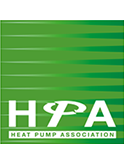FAQs About MasterTherm Heat Pumps
What are the requirements for a horizontal collector installation?
The size of land required for the construction of power depends on the heat pump and soil properties. The higher the humidity/water content, the larger the energy yield.
Generally, for every 1kW of heat you will need approximately 60 square meters of land.
Generally, for every 1kW of heat you will need approximately 60 square meters of land.
What are the requirements for a vertical collector (borehole) installation?
When outdoor space is limited or the building suffers extreme temperatures, we would recommend installing geothermal boreholes. Here, the ground collector is dropped into geothermal boreholes to harness heat deep from the ground.
The maximum depth of the well is dependant upon the driller, we would recommend a maximum of 100m per loop.
Generally, for every 1kW of heat you will need approximately 20m of geothermal drilling.
The maximum depth of the well is dependant upon the driller, we would recommend a maximum of 100m per loop.
Generally, for every 1kW of heat you will need approximately 20m of geothermal drilling.
Are MasterTherm heat pumps compatible with variable tariffs?
Yes, MasterTherm heat pumps can integrate with variable tariffs such as those provided by Octopus Energy and Bulb. This integration is enabled through Homely Energy which also provides a smartphone app enabling you to set your heating schedules and monitor your energy usage.
What outputs are your heat pumps available in?
We offer both fixed output and inverter heat pumps. Our fixed output heat pumps are available in outputs ranging from 1 -78kW and our inverter heat pumps have outputs available from 1-45kW. We also offer customisations and enhancements to our heat pumps and can design master/slave configurations with two or more heat pumps working in tandem to offer bespoke solutions for a wide range of commercial and industrial applications.
Which is better - fixed output or inverter heat pumps?
We've been designing and manufacturing fixed output and inverter heat pumps for over 25 years and we strongly believe that every project and its requirements is different. This being said in the majority of cases it's an inverter heat pump which will provide the best efficiencies and performance. An inverter heat pump will adjust itself as required to meet the heat requirements, whereas a fixed output heat put will always work at 100% capacity even if a property only requires a small top up of heat or hot water, this on-off nature causes greater wear and tear, reducing system lifespan in comparison to inverter units.
Which is better - ground source or air source?
This is very much dependent on the nature of the project and budget. Air source heat pumps are quicker to install which helps to reduce costs and they are positioned externally which helps to save space inside the property. However ground source heat pumps provide greater efficiencies due to the more consistent temperatures found underground throughout the year(saving you more money on your energy bill) and tend to have longer lifespans. Ground collectors which are the pipes installed underground can last for 100+ years and whilst MasterTherm heat pumps come with a 7 year warranty, they tend to last for 20+ years with very little maintenance required.
What is EEV technology?
An electronically controlled expansion valve (EEV) allows seamless control of the refrigerant circuit. This increases heat pump efficiency (COP), operational reliability and lifetime of the appliance.
How do I know which model is right for my project ?
All MasterTherm accredited installers will carry out a site visit prior to installation and then produce a heat load report based on the information gathered. From the heat load report they'll be able to determine what heat output is required for your property. This is a very important part of the installation process as an undersized system will not produce enough heat whereas an oversized system could produce waste energy and increase running costs.
Do I need planning permission for a heat pump?
In most cases no. Since 2011 the installation of air source heat pumps has been considered permitted development, so you won't need to apply for planning if your installation adheres to the set criteria. Should your installation conflict with this criteria you will need to apply for planning. You do not need planning for ground source heat pumps, but you may need certain licenses for water source heat pumps depending on the water source you are hoping to use.
















